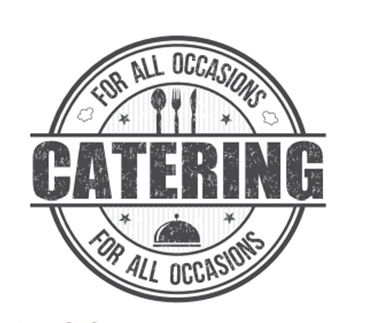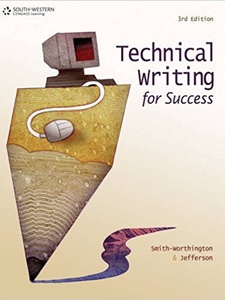What is, according to the author, the best way to stop eating fast food?
1) To stick to the decision not to eat it.
2) Not to walk near fast food restaurants.
3) To replace it with the animal-style fries.
4) Visit fast food restaurants not more than once a year.
Rushing up and down the streets, I often have days when I wonder how I will find the time to eat. This is when it becomes easy for students to turn to fast food. Once you stop living close by or have awkward time gaps between classes, fast food is available at almost every on-campus eatery.
There’s no doubt that the university tries to make healthier food readily available. Some cafes have organic foods ready to go and Greenhouse allows students to make almost any kind of fresh salad they can think of. But I have to wonder, why is there so much fast food available? For many students, it’s difficult to choose an expensive salad from Greenhouse over a meal from Taco Bell.
To solve the problem of finding healthy food on campus without having to eat salad daily, I do three things: take advantage of meal options I previously disregarded, completely ignore any fast food place and get creative in the dining halls.
First, I take advantage of meal options I had previously disregarded at on-campus restaurants. Being both a vegetarian and interested in a fair-trade diet has made it somewhat challenging to arrange an eating plan while living on campus. With limited options, food gets old fast. I looked closely at menus to see what options I overlooked. On campus, I eat oatmeal and fresh fruit instead of getting smoothies. I try the soup at Greenhouse instead of salad. If I have time in the morning I use an extra swipe and pack a lunch. By including this, I now have something new to eat each day, and I can go an entire school week without repeating a lunch.
As I create a pattern of eateries to maintain a healthy diet without losing interest in the food, it is clear I cannot include every on-campus restaurant in my plan.
This is where my second solution comes in. I have learned to completely ignore fast food. If I linger in front of Panda Express or Sbarro too long, temptation takes over. I started ignoring these places in the middle of fall quarter, and now I can walk by them without a thought. The only way I know to accomplish this is willpower. Of course, that does not mean in any way that you should never allow yourself the occasional visit to these restaurants. Everyone deserves a treat sometimes. I know I can never give up animal-style fries completely.
Finally, I have learned to get creative in dining halls. This can’t easily be done outside a dining hall, so it isn’t exactly an «on-the-go» solution to eating on campus. Just the same, it can help make meals less boring. I often take a veggie patty and make a wrap out of it, and I use the salad bar to throw on any other toppings I want. I use the microwave to heat up whatever I want in it. If you are a meat lover, you can put the bacon bits from the salad bar or slice a grilled chicken breast to put in soup or pasta.
When living on a college campus, it can be difficult to find a way to eat what you like and what’s good for you while trying to avoid a repetitive diet. There are a limited number of options available and the dominance of fast food can be hard to ignore. But if you try out as many places as you can, use willpower and turn on your creativity, you can certainly design your own healthy meal plan that won’t feel as if you eat the same thing every day.
When I decided to become a vegetarian, it was not for the reasons many people might normally assume. I had just moved to Malaysia and I often came across people who abstained from meat for religious reasons or because of health issues, but for me being a vegetarian is more of a lifestyle choice. In the months before moving to Malaysia, I had begun living plastic-free as part of a zero waste lifestyle. Of course, this has had several major positive influences on my life, but one of the greatest takeaways so far has been opting for a more plant-based diet.
Ever since I started my journey to living with less waste, I have constantly been looking for new ways to limit my individual impact on the planet. I regularly shopped at bulk food stores with my own reusable containers, but nothing has been more effective than removing meat from my diet. Without knowing it, my individual response to plastic packaging and composting had unearthed thoughts on the unethical and environmentally unsound practices of animal agriculture around the world. Thus, by the time I moved to Malaysia, I was ready to kick my daily meat-eating habits, replacing beef and chicken with leafy greens and seafood to help ease the transition.
In the months since, it has been challenging at times to stay motivated. That is why it is important to have like-minded friends, who will remind you to keep moving forward when you encounter problems. It was also difficult for me to realize that there were more options out there than just salad, green beans, and asparagus. Here in Malaysia, one can have an entire buffet of vegetarian options. Having grown up in a small-town in Alabama to a family occupationally obsessed with cows and meat eating, the concept of vegetables being a stand-alone meal was the hardest for me to grasp because they had always been mere supporting side dishes to the more substantial slab of beef, chicken, or fish.
The things I have learned since switching to the green side have ranged from mastering the art of cooking to taking advantage of seasonal produce. When I found myself bored, I approached an ingredient differently and cooked something new. Thus, instead of missing that cut of rib-eye steak, I discovered I really enjoyed the taste and texture of roasted eggplant. Being creative with cooking my food allowed me to go on without missing my meaty past. I transitioned slowly by first cutting out beef, chicken, and pork, before gradually removing seafood. Unfortunately, anchovies and prawn paste are quite common in Malaysian food, so that continues to be a challenge at most restaurants.
Incorporating a vegetarian diet has had a truly “mind, body and sour’ effect on me. Since I made the decision to be a vegetarian, I have become more mindful of what I eat and where the food comes from. My body has reaped several rewards as well. Not only have I become more aware of the effects the food I eat has on my body, but I have also started losing weight while eating just as much as I did before. My skin has improved, too (partly thanks to the plant-based skincare products I have personally blended for myself), and I have rarely fallen ill. Of course, vegetarian meals take more time to prepare than throwing a chunk of meat on the grill, but I have never felt healthier than I do today.
Since the transition to a vegetarian diet, my life has changed tremendously. What I have learned so far is that vegetarianism is not a package deal. It does not dictate a set of rules on how one should live. More importantly, though, this lifestyle gives people a cause to care and inspires them to be more aware of the struggles our animal friends face in factory farms. If living a zero waste lifestyle rekindles a sense of environmentalism and conservation, a plant-based diet instils a sense of compassion.
(Adapted from “How my life changed after I became a vegetarian” by В. T. Ramsey)
1. The author became a vegetarian
1) because his friends didn’t eat meat.
2) due to religious reasons.
3) as a result of his way of life.
4) because meat was harmful to his health.
2. What was NOT the author’s motive for becoming a vegetarian?
1) Having like-minded friends.
2) Producing less waste.
3) Protesting against inhumane practices of agriculture.
4) Minimizing environmental impact.
3. The expression “kick my daily meat-eating habits in paragraph 2 (“…by the time I moved to Malaysia, I was ready to kick my daily meat-eating habits…”) is synonymic to…
1) keep eating meat-based products
2) decrease eating meat-based products.
3) increase eating meat-based products.
4) stop eating meat-based products.
4. What was the most difficult part in the author’s transition to a plant-based diet?
1) Not to eat beef, chicken or fish.
2) To realize that vegetables can be the main course.
3) To have lots of vegetarian dishes to choose from.
4) To stay motivated and keep moving forward.
5. What has changed in the author’s life since he became a vegetarian?
1) He visited only vegetarian restaurants.
2) He ate only fresh produce from local markets.
3) He learned to cook vegetarian dishes.
4) He began missing meat dishes.
6. According to the author, what is NOT the effect of being a vegetarian?
1) Losing weight without any special effort.
2) Staying healthy.
3) Using famous skincare products.
4) Becoming more environmentally conscious.
7. In the final paragraph the author emphasizes that vegetarianism…
1) promotes a sense of environmentalism.
2) raises people’s awareness of animal extinction.
3) is not a package deal.
4) makes people more sympathetic.
ВОПРОС 1 – 3
ВОПРОС 2 – 1
ВОПРОС 3 – 4
ВОПРОС 4 – 2
ВОПРОС 5 – 3
ВОПРОС 6 – 3
ВОПРОС 7 – 4
Задание № 24477
Study the advertisement.
You are considering to order catering service for your mum’s birthday and now you’d like to
get more information. In 1.5 minutes you are going to ask four direct questions to fi nd out
about the following:
- availability of vegetarian dishes
- the range of desserts
- price per 6 persons
- necessity of prepayment
You have 20 seconds to ask each questions.
[topic]
[topic]
Показать ответ
Комментарий:
1. Are vegetarian dishes available at your company?
2. What is the range of desserts?
3. What is the price per 6 persons?
4. Is it necessary to do prepayment?
Ответ:
Нашли ошибку в задании? Выделите фрагмент и нажмите Ctrl + Enter.
Для общих вопросов опорное задание
начинается с одного из союзов – if или whether.
|
Опорное задание |
Вопросы |
|
|
Yes/No –questions (if/whether) |
||
|
If any safety |
Is any safety Do you |
|
|
If any |
Are any Do you /ask Should I give Do I have to |
|
|
If there are |
Are there any Are there |
|
|
If |
Are any Do you |
|
|
If there any |
Are there any Do you |
|
|
If special |
Are any Do I have to Should I |
|
|
If |
Is the Is the Do I have to |
|
|
If there are |
Are there any Are the |
|
|
If |
Are Do you |
|
|
If breakfast |
Is breakfast Do you |
|
|
If gift |
Is any gift Do you |
|
|
If there is |
Is there any |
|
|
If training |
Is training Do you |
|
|
If any |
Is any Can I get any |
|
|
If it is |
Is it possible Can I take a |
|
|
If it is |
Is it Should I Do I have |
|
|
If all |
Are all |
|
|
If any skills |
Are any Should I have Do I have to |
|
|
If there is |
Is there any |
|
|
If there is |
Is there Do you |
|
|
Whether rings |
Are the |
|
|
If silver |
Does silver |
|
|
Whether Blue |
Do Blue Sky |
|
1
Процесс составления специальных вопросов к
подлежащему является самым простым, надо только определить, что нужен
вопрос такого типа.
|
Опорное задание |
Вопросы |
|
|
Wh-questions ( what/which/how + noun group) |
||
|
What free |
What free time activities are offered? |
|
|
Which |
Which types |
|
|
What kind |
What kind of |
|
|
What kind of |
What kind of |
|
|
How many |
How many |
|
|
Which |
Which |
|
|
Which |
Which group |
|
|
Which |
Which dates |
|
|
What films |
What films |
|
Составление специальных вопросов к
второстепенным членам предложения. Чуть сложнее. Нужен обратный порядок
слов.
|
Опорное задание |
Вопросы |
|
What |
What are the |
|
What |
What modern |
|
When the |
When do the tour |
|
Where the |
Where is the |
|
How |
How does/can |
Специальные вопросы на основе инфинитивных
конструкций легко узнать по инфинитиву с частицей to ( в качестве сказуемого будут can/could, may, should, will, have to и др. )
|
Опорное задание |
Вопросы |
|
|
Wh-questions + to(what to/where to/how to, etc.) |
||
|
Who to |
Who do I |
|
|
How to |
How can I |
|
|
How to |
How can I |
|
|
What |
What should |
|
|
When |
When will we |
|
Лексические
признаки вопросов
|
1. |
Вопросы |
|
Availability |
What courses What courses What courses |
|
Availability |
Are student Are there any What |
|
Availability |
Are any price Are there any |
|
Availability |
What tours Are any tours Are there any |
|
Availability |
Are any Are there any What school |
|
Availability |
Are any flats Are there any Can we rent a |
|
Availability |
Are any Are there any Can we book a |
|
Availability |
Are there any Are there any Does the |
|
Availability |
Are there any Can we get |
|
Availability |
Can we book a Are there any |
|
Availability |
Is there/ can Is there/ can |
|
Availability |
Does the Is there any |
|
Availability |
Are there any |
2. Directions
to ….. как добраться
How can I get to the hotel/cinema?
3. Discounts
for……… есть ли скидки Are there any discounts
for students? Do you have…..?
4. Distance
from……. Расстояние How far is the
hotel from the city centre?
5. Coverage
of (или noun + coverage) … Рамки, охват, границы,
сфера действия Н—р: insurance coverage How much
money does the insurance cover? Or What is the coverage of
the insurance?
6. Reservation/booking
online/advance reservation/booking a room/ticket заказ,
резервация Can I reserve a room
online/in advance?
7. Number
of … (-number of cruises run daily; -number of lessons per week)
How many cruises do you run daily? Или How
many cruises are run daily? How many lessons per week are given? Или ….are there peer week?
8. Connection
………. связь между объектами What public transport
connections are there between ……. and…..?
9. Necessity/possibility
to + verb….. Necessity/possible или
Can /Should I/Do I have to …… Is it necessary to book in
advance? Do I have to book in advance? Should I…..?
3
10. Restriction
ограничения Н—р:
age restriction; restriction foe children Is there any age restriction
for those who want……?
11. Permission разрешение Is it allowed to take pictures in the museum? или Can I……..?
12. Refund for…
возмещение/компенсация убытков Can I get a refund for the ticket if I miss….?
13. Duration (of)
курс обучения,
круиза, путешествия How long/How
much time….? How much time does the intensive course last?
14. Salary salary
of a photographer How much does ……..get/earn? What is the ………salary?
15. Options вариант, возможность, возможность выбора Н—р: bungee jumping options, payment options, meals options,
delivery options.
16. Location Where
is the hotel situated/located?
17. Working/opening
hours часы работы
When….и What hours museum
working hours What are the museum working hours ?
18. Type/kind/sort
What kind/type/ sort of …… ?
19. Range (близко к
предыдущему, ) Н—р: price range What is the price range of the room? What
prices are there within the possible range?
20. Variety начинаются cо слова What
Н—р: variety of drinks; What
drinks do you serve? What courses do you offer?
21. Facilities и accommodation чаще со словом availability of Н—р: hotel/college facilities What facilities are available in
the hotel? What college facilities do you offer? What college facilities
are offered?
22. Dates/time What
are the dates of ………? When does the………..start?
23. Price/cost/fee Н—р: entrance fee What is the
entrance fee? How much is the ticket? How much does the ticket cost?
4
Задание №9079.
Чтение. ЕГЭ по английскому
Прочитайте текст и запишите в поле ответа цифру 1, 2, 3 или 4, соответствующую выбранному Вами варианту ответа.
Показать текст. ⇓
What should people consider to cut in relation to the climate change, according to the author?
1) Use of refillable bottles.
2) Meat production.
3) Level of environmental consciousness.
4) Development of eco-industry.
Решение:
What should people consider to cut in relation to the climate change, according to the author? Meat production.
Что, по мнению автора, следует учитывать в связи с изменением климата? Производство мяса.
«… there is now a more pressing matter for humans to turn their attention to in order to slow global climate change: the animal industry.»
Показать ответ
Источник: ФИПИ. Открытый банк тестовых заданий
Сообщить об ошибке
Тест с похожими заданиями
Recommended textbook solutions
Edge Reading, Writing and Language: Level C
ISBN: 9781285439594David W. Moore, Deborah Short, Michael W. Smith
304 solutions
Technical Writing for Success
3rd Edition•ISBN: 9780538450485 (3 more)Darlene Smith-Worthington, Sue Jefferson
468 solutions
The Language of Composition: Reading, Writing, Rhetoric
2nd Edition•ISBN: 9780312676506Lawrence Scanlon, Renee H. Shea, Robin Dissin Aufses
661 solutions
Technical Writing for Success
3rd Edition•ISBN: 9781111445072Darlene Smith-Worthington, Sue Jefferson
468 solutions
The author thinks that her university can
affect the environmental campaign by …
Прочитайте текст и выполните задания 12 – 18. В каждом задании обведите цифру 1, 2, 3 или 4, соответствующую выбранному Вами варианту ответа.
Change your food choice
While recycling and refillable water bottles were once the most popular fad among the environmentally conscious, there is now a more pressing matter for humans to turn their attention to in order to slow global climate change: the animal industry.
When you navigate to the university website on campus sustainability, you find a list of all of the ways the University is making an effort to “go green”.
A plan to increase levels of recycling on campus? Great! Printers that reduce paper waste? Fantastic! A garden to collect excess rainwater? Amazing! Let’s go one step farther.
If we’re not actively educating students about the immense ways our food choices influence the environment, then we’re not doing enough to really serve the causes we claim to support. It’s not only about giving students the option to eat less meat but telling them how these choices can influence the future of the environment and create sustainable change. The question of whether eating meat is bad for the environment is not a question anymore. And the issue isn’t that people are unwilling to try more plant-based foods or unaware of the perils the environment is currently in, but rather, it’s that people aren’t aware of the effects their demand for meat has on the earth.
Lean and Green, a student initiative that strives to promote sustainability on campus through environmentally friendly and healthy diet choices, conducted a study that showed students don’t fully understand the impact their eating habits have on the environment.
The livestock industry of chickens, cows and pigs produces more greenhouse gas emissions that all cars and trucks combined, according to Greenpeace. So as we eat more meat, the demand for meat likewise goes up and increases those gases. But when we eat more meat alternatives instead, like nuts or tofu, we can make a big difference. According to Walter, if a person went vegetarian for a year, they would produce three times less carbon than if they were to purchase a hybrid car.
And interestingly, more than 92 percent of responders said they would like to see more plant-based foods in the university dining halls. So it’s clear that students are willing to eat less meat and explore more veggie-friendly options. But what’s not clear for students is why these options are imperative for making choices that help our planet.
With the student population of about 34,000, the University has the capability to make significant changes for the future of the environment. Give the students want they want – which is more diverse plant-based options – but also tell them why they should want it. Informing students about why these options are environmentally favorable can only inspire students to choose them more often. Posters throughout the dining halls, informational email campaigns, programs in residence halls and even financial incentives can help inform students and shape their knowledge and decision-making.
In conjunction with offering more vegetarian options, letting non-vegetarian students know about the sustainable benefits that come from choosing these foods can encourage them to eat them more often.
The animal industry is only going to grow if people keep eating meat. If our university wants to have an impact and keep up its reputation as environmentally conscious, it should ensure its students know how they can do their part to help the earth.
educating students about ecological problems.
creating and offering new vegetarian dishes.
reducing meat options in menus on campus.





